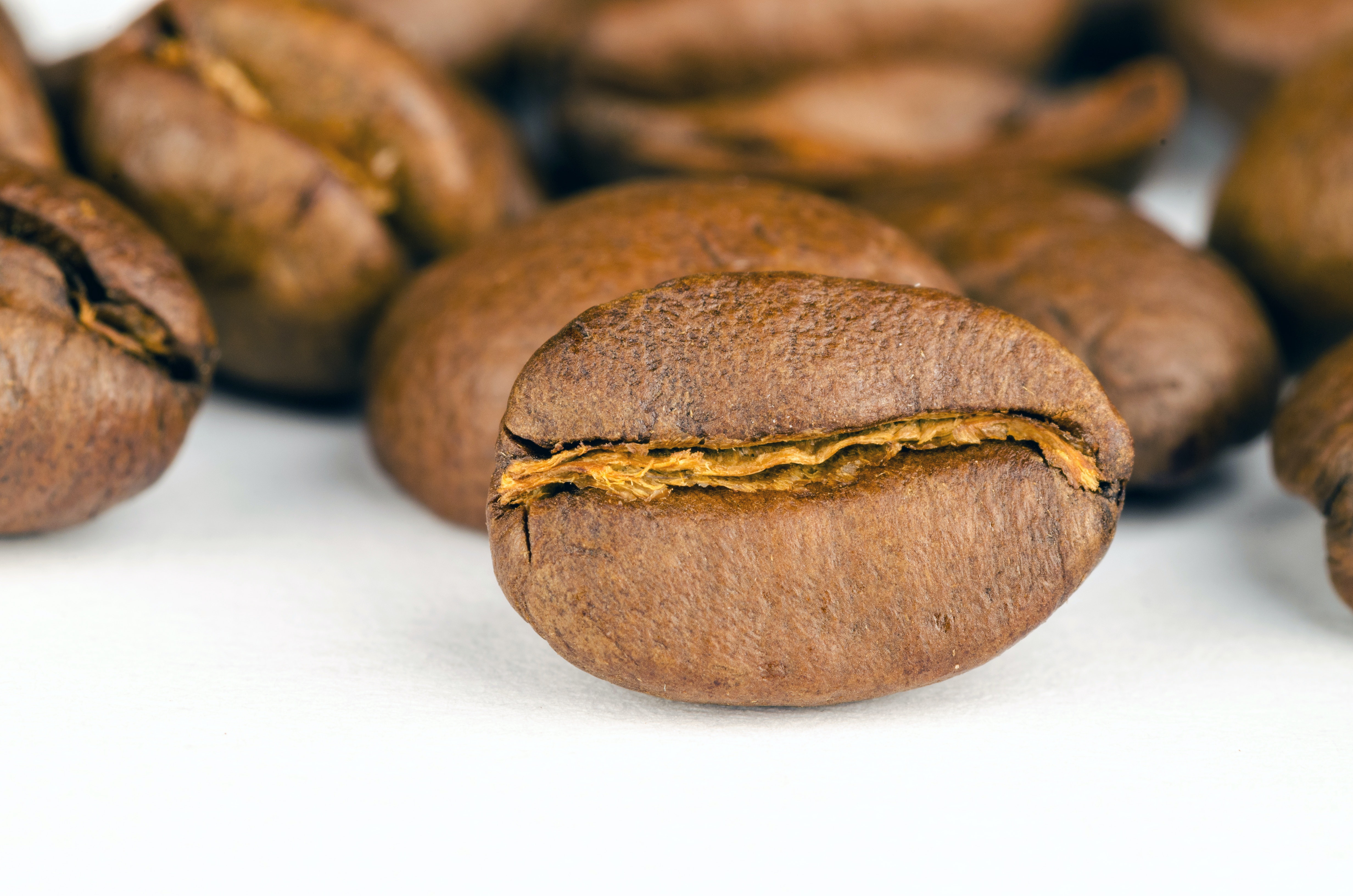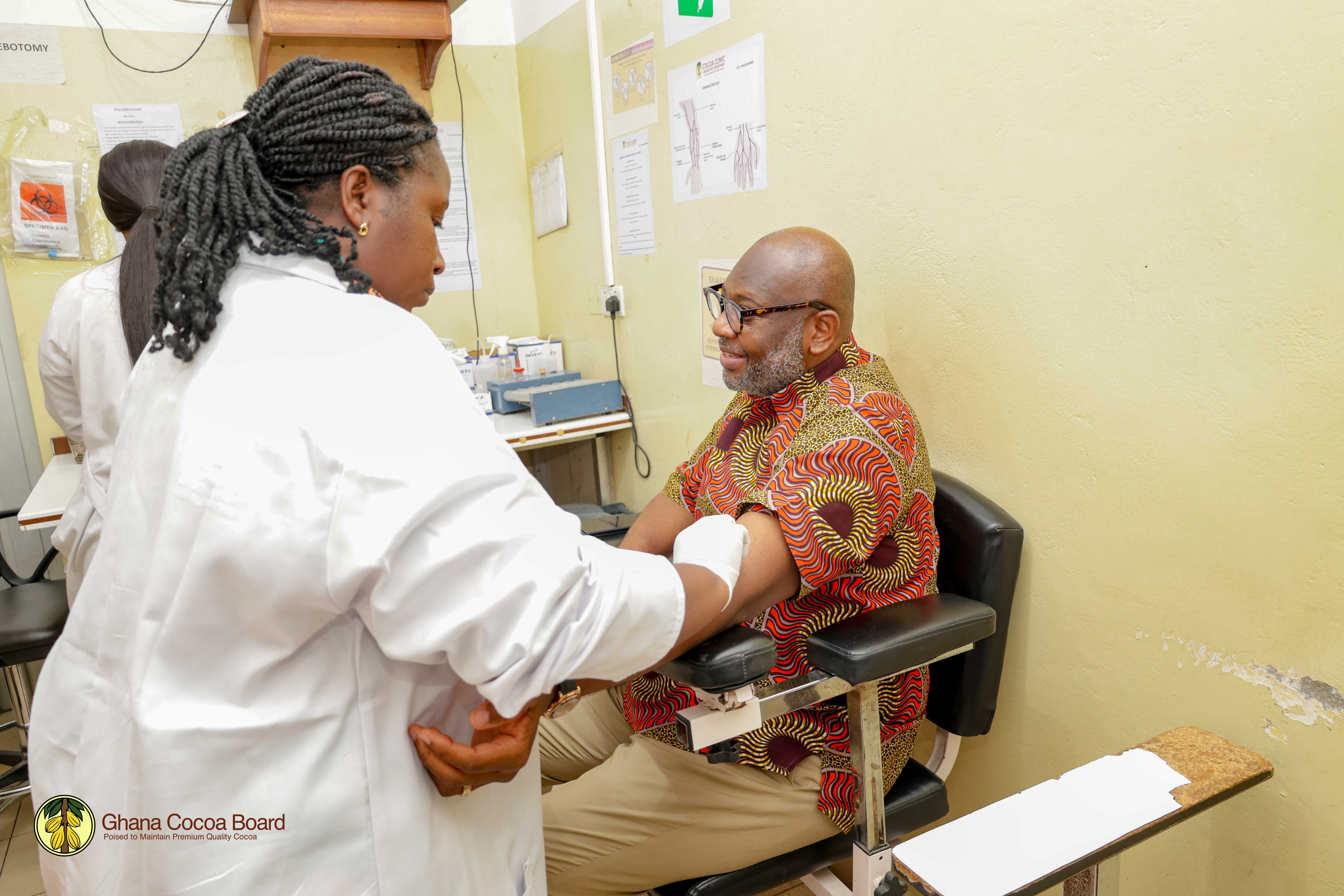COFFEE: PRODUCTION, CONSUMPTION & POTENTIAL HEALTH BENEFITS

Date: 09th July 2022
Coffee is a valuable tropical agricultural commodity in the world economy which comes second only to crude oil in global trade. It employs in its cultivation, transportation, marketing and processing to nearly 25 million families and over 125 million people in developing countries. Additionally, it serves as the key source of revenue for many developing countries in Asia, Africa and Latin America.
Two main species, Arabica, scientifically referred to as Coffea arabica and Robusta, known scientifically as Coffea canephora form the bulk of commercial coffee production globally. Robusta coffee adapts well at lower altitudes (≤ 600 m above sea level) whereas Arabica coffee is restricted to highlands at altitudes of 1600 – 2800 m above sea level. Robusta which is the main type of coffee grown in Ghana, largely due to ecological adaptation reasons, prefers an optimum annual rainfall in the range of 1200 to 1800 mm for proper growth and development, although the crop adapts better to annual rainfall of > 2000 mm.
An optimum mean annual temperature range of 24 – 30 °C, and not below 15 °C is ideal for Robusta coffee. Also, a short dry spell lasting two to four months, corresponding to the quiescent growth phase of the crop, is important to stimulate flowering. Robusta successfully grows under high air humidity approaching saturation, or in less humid sites.
Active cultivation of coffee in Ghana started in the mid- eighteenth century when the crop was introduced by the early missionaries. It is mostly cultivated by smallholder farmers and in a few plantations scattered in the cocoa growing regions of the country including the Eastern, Central, Ashanti, Western North, Western, Bono, Ahafo, Volta and Oti Regions. The coffee season in Ghana typically runs from October to September of the following year.
The planting period starts in May at the onset of the rains during the major rainy season and harvesting typically starts in September. Currently, a number of clonal and hybrid varieties developed by the Cocoa Research Institute of Ghana with high yield potential, good cup quality and tolerance to biotic and abiotic stresses have been released and supplied to coffee farmers annually through CRIG and the Seed Production Division of the Ghana COCOBOD.
Coffee yields in the country are generally low; averaging approximately 0.5 t ha-1, although yields of > 1.5 t ha-1 have been recorded on research experimental fields. Significant efforts are being made from research stand point to bridge this substantial yield gap.
In view of the great potential of the coffee industry to the Ghanaian economy, there has been major reforms by the Government of Ghana to improve the coffee sector. Key among them include: Agricultural Diversification Project – This was initiated in 1991 where the government of Ghana embarked on the agricultural diversification project to revamp the coffee industry through interventions such as improved pricing, liberalized markets, improved research and extension services which resulted in the highest level of coffee production in 1999/2000.
Coffee Rehabilitation Project (CRP) – The government of Ghana through the Ghana Cocoa Board implemented a four year CRP in 2011 in order to promote the production and local consumption of coffee. The project resulted in the expansion of the area under cultivation and national coffee production of 12,650 tons was estimated at the end of the CRP in 2015.
Planting for Export and Rural Development (PERD) – In more recent times, the government of Ghana through the Ministry of Food and Agriculture in collaboration with the Ministry of Local Government and Rural Development rolled out the PERD programme in April 2019 that sought to diversify the Ghanaian export base to accelerate rural development. One key facet of the PERD programme with regards/regard to the coffee sector was the development and distribution of improved coffee planting materials by CRIG (COCOBOD) to coffee farmers across all the coffee growing regions of the country.
A significant number of coffee farmers received planting materials under the PERD programme and it is anticipated that significant revenue would be realized from these plantings in the not-too-distant future to improve the livelihoods of coffee farmers and the Ghanaian economy as a whole. The Ghanaian coffee sector today presents enormous opportunities for farmers in general as policy directions of government will provide impetus to transform the sector immensely.
Coffee is known globally to have many health benefits. Despite the established health benefits of coffee, its consumption is quite low in the country. At present, coffee – the dark, aromatic, non-alcoholic brew loved the world over for its stimulating and refreshing taste is a product of the coffee plant. It is the bean extracted from the fruit of the coffee plant that is roasted, ground, and liquored to produce the fascinating brew.
Coffee is the most popular beverage consumed by about one-third of the world’s population in an amount larger than any other beverage. Although coffee has a long history of human food use for over 1000 years, until recently most of the studies on its health effects have focused on potential adverse and toxic effects.
Regardless of the vast amount of research, evidence to support a direct link of coffee with diseases has been limited and inconsistent. However, although not yet proven, recent scientific literature suggests the potential beneficial health effects of coffee and several of its constituents. Drinking coffee in moderation (2 to 3 cups) a day has been found to be associated with many health benefits across a range of diseases and conditions including:
a. Generally, coffee consumption is used for social activity, leisure, improvement of work performance, and well-being.
b. Due to its antioxidant content, coffee consumption has been inversely associated with the risk of cancer at various sites in the human body, i.e. it has a positive effect on performance and protection against some types of cancers, liver disease, and radiation–induced tissue damage.
c. Caffeine in coffee serves as an important natural stimulant which has been shown to improve endurance performance in long-duration physical activities.
d. Lower risk of cardiovascular disease, coronary heart disease, and stroke (i.e. an inverse relationship have been found between coffee consumption and the risk of developing the aforementioned conditions).
e. Long-term coffee consumption has been shown to be associated with significant dose-dependent reductions in the risk of developing type 2 diabetes.
f. Coffee intake reduces the risk of liver damage in people at high risk for liver disease including hepatic injury, cirrhosis, and hepatocellular carcinoma.
g. Consumption of coffee is also inversely associated with the risk of Parkinson’s disease in men and particularly women who have never used postmenopausal oestrogen.
h. Improves brain function and the risk of Alzheimer’s disease is lower in people who regularly consume caffeine- containing coffee than in those who do not.
Despite the general good outcomes, it should be emphasized that individual sensitivity to coffee and the biological effects of coffee among humans may vary because of personal variations at the molecular level. Additionally, some negative effects of coffee tend to emerge with excessive drinking, so it is best to avoid heavy coffee intake.
This write up has focused on the coffee crop, its production in Ghana and highlighted a few of the potential benefits from moderate intake of coffee. As further studies are carried out on the significant functional differences among persons, a better understanding of the effects of coffee on personal health would be realized.
By Cocoa Research Institute Of Ghana (CRIG)
Other News / Articles you might be interested in.

COCOBOD HONOURS GHANAIAN COCOA FARMERS FOR EXCELLENCE AT INTERNATIONAL COCOA AWARDS
Management of Ghana Cocoa Board (COCOBOD) has honoured the winners of the 2023 International ...
Read More
DR. RANSFORD ABBEY LEADS BY EXAMPLE, UNDERTAKES ANNUAL MEDICAL EXAMINATION AT COCOA CLINIC
The Chief Executive of the Ghana Cocoa Board (COCOBOD), Dr. Ransford Abbey, has ...
Read More
COCOA MEDIA HUB LAUNCHED TO ENHANCE OPEN GOVERNANCE AND FARMER ENGAGEMENT
Ghana Cocoa Board, along with various stakeholders, has participated in the official launch ...
Read More